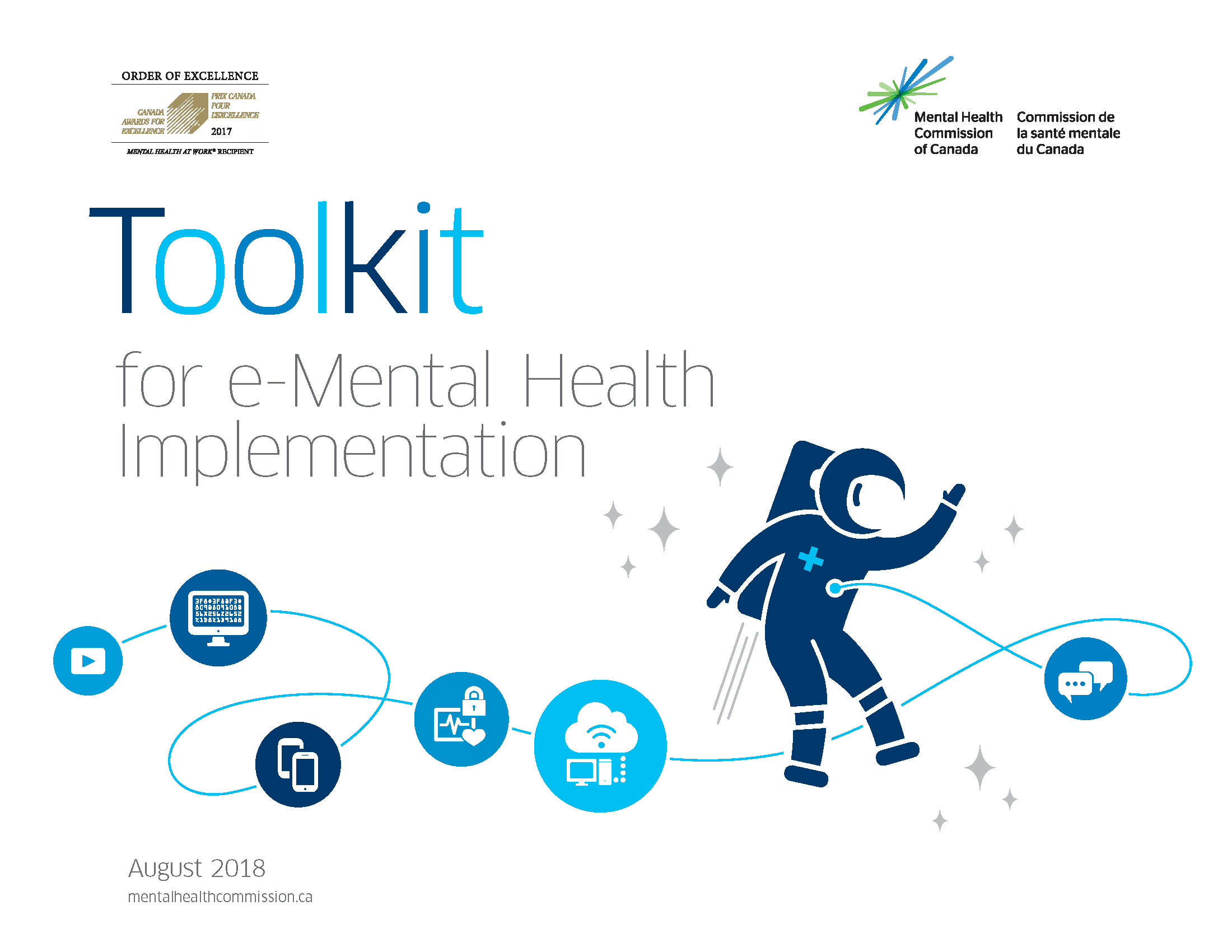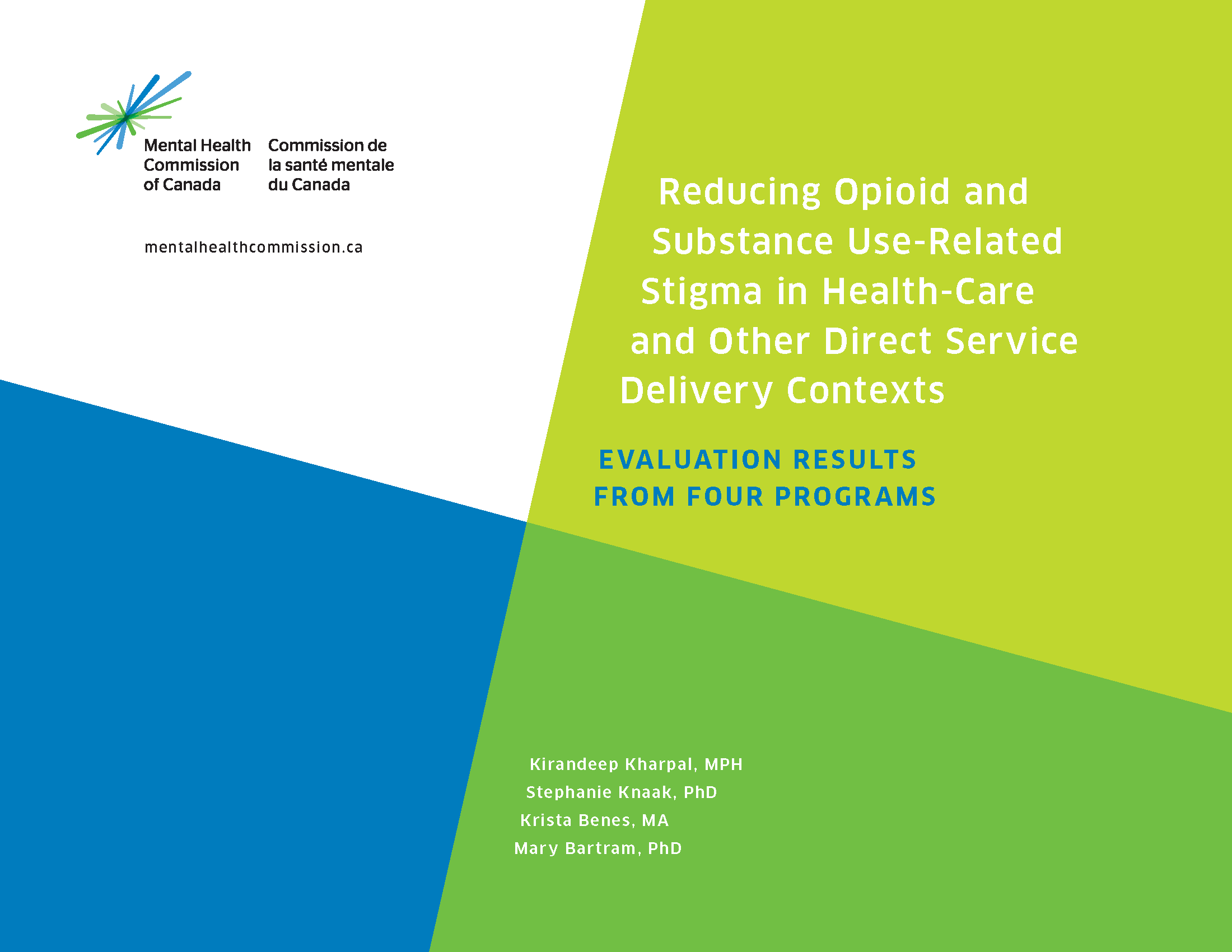If you are in distress, you can call or text 988 at any time. If it is an emergency, call 9-1-1 or go to your local emergency department.
- Professional Resources, Toolkits
Toolkit for e-Mental Health Implementation
The term e-mental health refers to the use of the internet and other electronic communication technologies to deliver mental health information and care. E-mental health services are an effective and complementary option to traditional face-to-face mental health support. By providing accessible and convenient assistance, e-mental health can play an important role for patients seeking help. Provincial and territorial jurisdictions have improved e-health resources for health providers. But mental health care practitioners continue to identify common barriers around the provision of e-mental health, Overcoming these barriers is a challenge for financially strained mental health care systems that face increasing demand and an aging clinical workforce. However, research shows the likelihood of achieving successful e-health programs increases when: To support the establishment of e-mental health programs, this implementation toolkit was developed. The goal of the toolkit is to provide: The toolkit reflects information gathered from the knowledge and experience of the authors and research group, an environmental scan and rapid review of existing literature, interviews conducted with key informants across Canada and internationally, peer-reviewed research, templates and examples provided by relevant organizations, and insights shared by many on-the-ground practitioners at various meetings, gatherings and forums.This resource was published in 2018. The data may be out of date.
What is e-mental health?
Why an e-mental health implementation toolkit?
including:
- Professional Resources, Toolkits
Toolkit for e-Mental Health Implementation
Toolkit for e-Mental Health Implementation
- e-Mental Health, Health-care, Health-care Providers
The term e-mental health refers to the use of the internet and other electronic communication technologies to deliver mental health information and care. E-mental health services are an effective and complementary option to traditional face-to-face mental health support. By providing accessible and convenient assistance, e-mental health can play an important role for patients seeking help. Provincial and territorial jurisdictions have improved e-health resources for health providers. But mental health care practitioners continue to identify common barriers around the provision of e-mental health, Overcoming these barriers is a challenge for financially strained mental health care systems that face increasing demand and an aging clinical workforce. However, research shows the likelihood of achieving successful e-health programs increases when: To support the establishment of e-mental health programs, this implementation toolkit was developed. The goal of the toolkit is to provide: The toolkit reflects information gathered from the knowledge and experience of the authors and research group, an environmental scan and rapid review of existing literature, interviews conducted with key informants across Canada and internationally, peer-reviewed research, templates and examples provided by relevant organizations, and insights shared by many on-the-ground practitioners at various meetings, gatherings and forums.
This resource was published in 2018. The data may be out of date.
What is e-mental health?
Why an e-mental health implementation toolkit?
including:
SHARE THIS PAGE
RELATED

Review our Assessment Framework for Mental Health Apps — a national framework containing key standards for safe, quality, and effective mental health apps in Canada.

To help expand the use of e-mental health services, we developed four online learning modules based on our Toolkit for E-Mental Health Implementation, in collaboration with the Centre for Addiction and Mental Health (CAMH).

Stepped Care 2.0© (SC2.0) is a transformative model for organizing and delivering evidence-informed mental health and substance use services.

